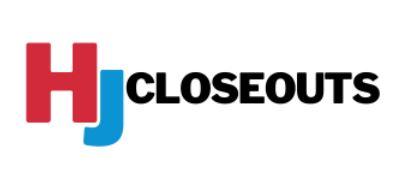Wholesale school supplies refer to products that are sold in bulk quantities to retailers, educational institutions, businesses, or individuals at discounted prices. These supplies typically include a wide range of items needed for educational purposes, such as:
- Writing instruments: Pens, pencils, markers, crayons, etc.
- Notebooks and paper: Exercise books, loose-leaf paper, drawing paper, etc.
- Stationery: Erasers, rulers, sharpeners, glue sticks, etc.
- Backpacks and bags: School bags for students to carry their belongings.
- Arts and crafts materials: Paints, brushes, scissors, colored paper, etc.
- Classroom equipment: Whiteboards, chalkboards, bulletin boards, etc.
- School uniforms and accessories: Shirts, pants, skirts, ties, etc.
- Educational toys and games: Learning tools for young students.
- Calculators and other technical instruments.
If you're interested in purchasing wholesale school supplies, please visit our website to check out the whole school supply inventory.
When a business has too much inventory, it is facing the issue of excess inventory, also known as overstock or surplus inventory. As mentioned earlier, this occurs when the quantity of goods or products in the company's possession exceeds the actual demand or sales requirements.
Having too much inventory can be problematic for several reasons:
Costs: Excess inventory ties up working capital and leads to increased holding costs, including storage, insurance, and potential obsolescence expenses.
Reduced Cash Flow: With a significant portion of capital tied up in excess inventory, the business may face cash flow challenges and have less money available for essential operations and investments.
Risk of Obsolescence: Products sitting in inventory for extended periods are at risk of becoming outdated or obsolete, reducing their value and potentially leading to losses.
Storage Space: Excess inventory may require additional warehouse space or storage facilities, which can be costly and inefficient.
Opportunity Cost: The capital invested in excess inventory could have been used for other purposes, such as research and development, marketing, or expansion.
Increased Management Complexity: Managing excess inventory can be time-consuming and divert attention from other critical aspects of the business.
To address the issue of too much inventory, businesses can implement several strategies:
Discounts and Promotions: Offer discounts or run promotions to incentivize customers to purchase excess inventory.
Liquidation: Sell excess inventory to liquidators or through online marketplaces at discounted prices.
Adjusting Production or Procurement: Review and adjust production or procurement quantities based on actual demand and sales data.

Improved Forecasting and Inventory Management: Implement better forecasting techniques and inventory management systems to ensure optimal inventory levels.
Returning to Suppliers: Negotiate with suppliers to return excess inventory or explore buyback arrangements.
Donations: Donate excess inventory to charitable organizations for potential tax benefits.
By effectively managing and reducing excess inventory, businesses can optimize their operations, free up capital, and improve their overall financial health. It's crucial to strike the right balance between having enough inventory to meet customer demand and avoiding the costs and risks associated with excess stock.
Buying excess inventory refers to the practice of purchasing surplus goods or products from other businesses or manufacturers. When a company faces challenges with managing its inventory and ends up with more products than it can sell, it may seek to offload the excess stock by selling it to other businesses that are willing to buy it at a discounted price.
There are several reasons why a business might consider buying excess inventory:
-
Resale Opportunity: Some businesses specialize in buying excess inventory to resell the products through various channels, such as discount stores, online marketplaces, or wholesale distribution.
-
Cost Savings: Purchasing excess inventory at a discounted price allows the buying business to acquire products at a lower cost, potentially increasing their profit margin when reselling the items.
-
Stocking Up for Seasonal Demand: Retailers or businesses with seasonal sales patterns may purchase excess inventory during off-peak periods to stock up for anticipated peak demand periods.
-
Diversification: Buying excess inventory can provide an opportunity for businesses to diversify their product offerings without incurring the full cost of manufacturing or procuring the items themselves.
-
Supply Chain Support: Companies with just-in-time inventory practices may purchase excess inventory to have backup stock in case of supply chain disruptions or sudden spikes in demand.
However, buying excess inventory also comes with its own set of considerations and risks:
-
Inventory Management: The buying business must have the necessary storage and inventory management capabilities to handle and sell the excess stock effectively.
-
Demand Uncertainty: There is no guarantee that the excess inventory purchased will sell quickly, and the buying business may face similar challenges in selling the items.
-
Quality Assurance: Ensuring the quality and condition of the excess inventory is essential to avoid customer complaints and returns.
-
Financial Risk: If the buying business overestimates demand or fails to sell the purchased excess inventory, it may incur losses.
-
Brand Image: Selling products acquired through buying excess inventory channels may impact the perceived value or exclusivity of the items.
Businesses interested in buying excess inventory should carefully assess their own market demand, storage capabilities, and potential risks before making such purchases. Building strong relationships with suppliers and being responsive to market trends can help mitigate some of the challenges associated with dealing in excess inventory.



